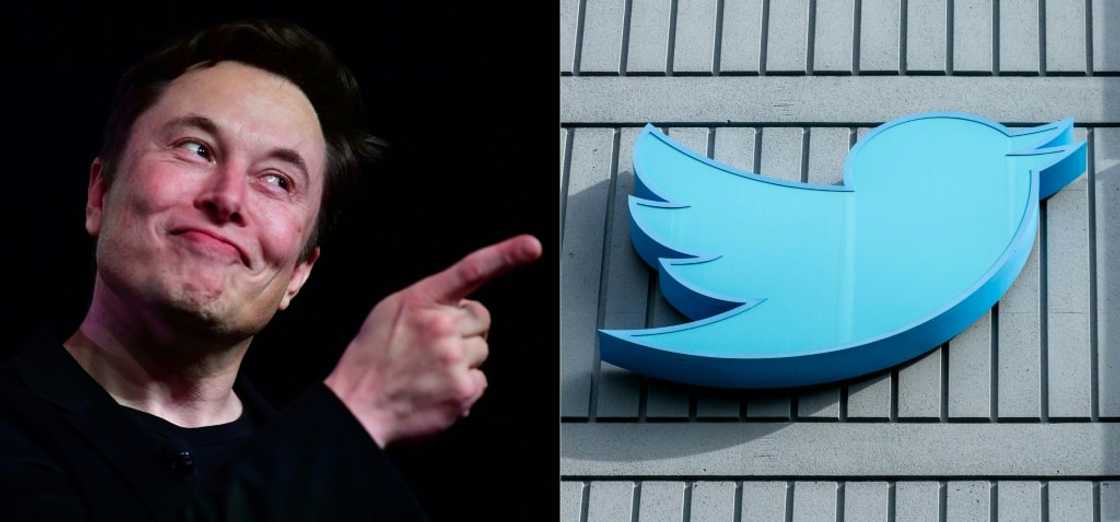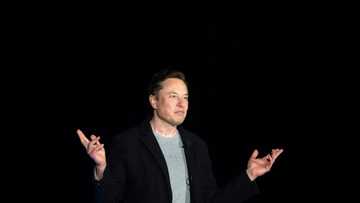Tweeters, and celebs, await 'blue tick' ultimatum

Source: AFP
PAY ATTENTION: Never miss breaking news – join Briefly News' Telegram channel!
All eyes are on whether Elon Musk will go through with stripping blue checkmarks from celebrities and other high-profile Twitter users starting April 1 unless they pay for the privilege.
Musk vowed to act, despite a previous attempt triggering a swarm of trolls and imposters.
The prized verification mark became a signature element of Twitter's success after it was introduced in 2009, helping the platform become a trusted forum for stars, politicians, companies and campaigners.
But tycoon Musk and his fans decried the blue check as a symbol of an online class system, separating what he called Twitter's "plebeians" from a privileged elite.
Opening the blue tick to paying subscribers -- in a program called Twitter Blue -- was among decisions made by Musk when he took ownership of Twitter last year, but his overhaul backfired terribly.
Within hours, Twitter was flooded by fake yet verified accounts impersonating celebrities and major companies, with the share price of drug-maker Eli Lilly see-sawing wildly because of a fake tweet.
PAY ATTENTION: Click “See First” under the “Following” tab to see Briefly News on your News Feed!
Musk swiftly backtracked, and instituted a more thorough verification policy for subscribers, but many advertisers fled the site, denying Twitter a major source of income that the CEO is struggling to replace.
Since taking control, Musk has sharply cut the group's ranks of employees and the site has seen a string of technical breakdowns.
Twitter also reopened the gates to tens of thousands suspended accounts, bringing a resurgence of hate speech and other negative content, according to organizations that track social media.
'Different standard'
It remains to be seen how many Twitter users will pay for a stamp of authenticity that had long been free.
"The question is, do you want to answer 'yes' to blackmail," said independent tech analyst Rob Enderle of Enderle Group.
If a celebrity or brand does not pay for a blue Twitter checkmark, an imposter might buy the illusion of authenticity, the analyst said.
Accounts getting blue checkmarks as part of Twitter Blue subscriptions will not undergo the same review to confirm they meet the "notable and authentic criteria" applied before Musk bought the platform, the company said in a post.
"Twitter Blue is basically a receipt -- it proves that someone or something paid them," Techsponential analyst Avi Greengart told AFP.
As matters currently stand, blue checks of celebrities -- including Justine Bieber and his 113 million followers or footballer Cristiano Ronaldo and his 108 million -- are tagged on the site as "legacy" accounts.
"It's more about treating everyone equally," Musk tweeted last week in a reply to William Shatner, the Star Trek star, who doesn’t want to pay.
"There shouldn’t be a different standard for celebrities."
According to Travis Brown, a Berlin-based software developer who tracks social-media platforms, a total of 13,200 accounts had made the switch from legacy to the new system.
"At this rate Musk might hit 1 in 20 by the April 1 deadline," Brown tweeted on Thursday.
The verified account conundrum also involves news media companies that have been tagged as business accounts that cost a hefty fee of $1,500 a month.
A spokesman for the New York Times told AFP it will not pay for a verified status on Twitter and that it would only pay for a blue tick for its journalists "in rare instances where verified status would be essential for reporting purposes."
The Washington Post said it would be reviewing the changes while AFP, in an internal email to staff, said it "will adapt as necessary."
Advocates have criticized plans to impose the paid-for verification model, an idea that is also being tested by Twitter rival Facebook in Australia and New Zealand.
Reporters Without Borders called paying for verification "a dangerous tool that introduces two-tier access to information on social media and should be withdrawn."
"There is no question that this erodes trust...for a boost of income that may not even come," said analyst Greengart.
Twitter's press email responded to a request for comment with an auto reply of a poop emoji.
Ella Irwin, the company executive in charge of Trust and Safety, did not respond for comment.
PAY ATTENTION: Сheck out news that is picked exactly for YOU ➡️ click on “Recommended for you” and enjoy!
Source: AFP




